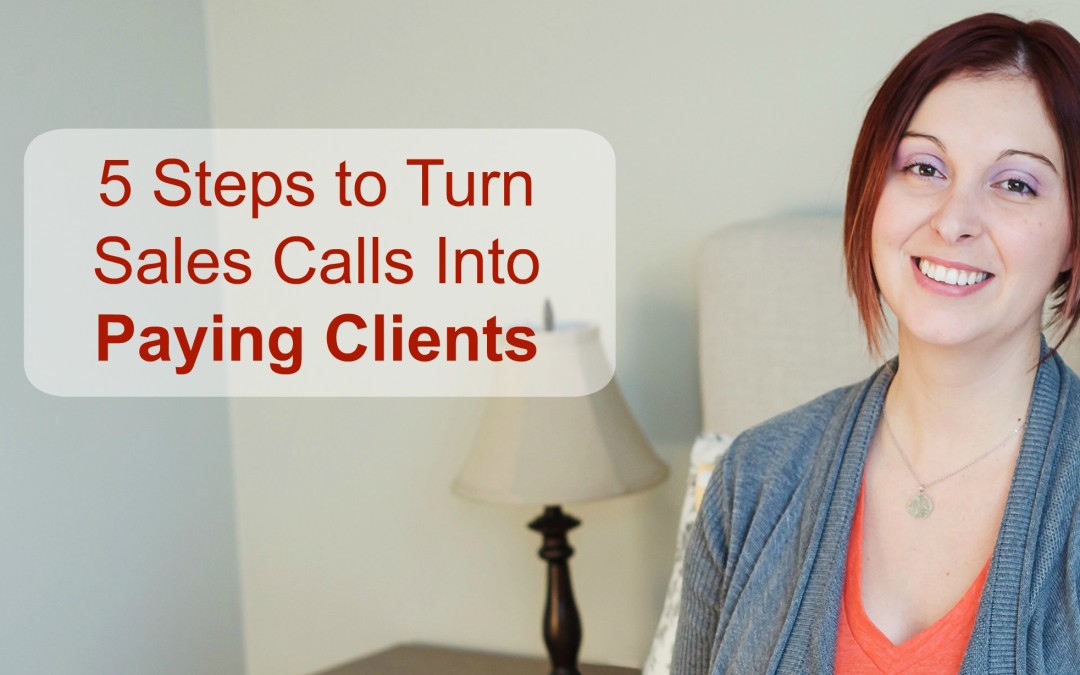The number one issue my clients come to me with is their sales call process. Perhaps this is something you’re struggling with as well. You don’t know how to get people to sign up for a discovery call with you (or clarity call or sales call - whatever you call it). When you DO finally get people on the phone, you feel like you’re about to choke on your words because you’re so nervous. You always end your calls feeling deflated, the potential client says they can’t afford it or they need to “think about it”, and you’re left feeling like a failure. Again. What’s the deal? Why are sales calls so hard? Here’s the good news – they aren’t. Sure, they can take some getting used to, and you’ll definitely need to work out a few kinks that are likely holding you back from more sales, but these calls are not hard. Or at least, they don’t have to be. Here are 5 things you can do to turn your sales call process around and start signing clients and making the big money you really want.
1. Tell them why they need you
Before you even hop on a call with a potential client, you first need to tell them why they need to work with you. Promoting your sales calls needs to be your #1 priority until you are fully booked with 1:1 clients. That means you need to get out there daily, hit the ground running, and sign up as many people as possible for calls with you (ideally, you want 5-7 sales calls each week, at minimum, until you’re booked with clients). The biggest mistake I see people making when promoting their sales calls is offering to give people advice. They may call it a “mini session” or a “clarity session” - but what this really means is that they will coach you for free, if you sign up for a call with them. Let me just be really clear: Sales/Discovery/Clarity Calls are NOT for coaching. They are to see if you’re a good fit to work with someone. So stop telling people you will coach them for free (otherwise you end up with a bunch of freeloaders on the phone who have no intention of buying from you). If you want to do free sessions, call them FREE SESSIONS. What you need to do instead, is write about the potential clients’ pain points, then paint a picture of how their life will be different after working with you, then talk about the benefits of working with you, then ask them to sign up for the call (think of this as a mini sales page). Tell them exactly why this is what they need right now.
2. Make use of sales call guidelines (NOT scripts)
There is a big caveat to this one. Yes, I recommend using a sales call GUIDELINE - but no, I don’t recommend reading a sales SCRIPT, word for word. I think it’s important to have a guideline of some sort to follow when you’re doing sales calls (especially if you’re just starting out doing them), but you definitely don’t want to be reading from them exactly as they are.
3. Get them to a decision before you hang up
The last thing you want to hear from someone at the end of a sales call is “I need to think about it”. If someone needs to think about whether or not they want to sign up to your program or buy your package, you didn’t show them the value in it. When you’re doing your sales calls, make sure you are clearly explaining why they need what you’re offering and how it will improve their life. Get them to a yes (or a no, if you’re truly not a good fit) before you hang up. The only thing they should need to think about when they get off the phone with you is where they are going to get the money.
4. No one cares about the features
When it comes time to talk about your program/package in depth, make sure you talk about the benefits over the features. In all honesty, no one really cares if you are offering 6 one-hour calls, plus email access, plus worksheets. They care about how this is going to change their life. They’re going to lose weight, they’re going to make more money, they’re going to find true love. Whatever it is for your potential client, spell out the benefits to them on the call. Don’t talk about the features at all (unless they ask about them).
5. Don’t ignore follow up
Did you know that up to 80% of sales are closed in follow up? Eighty percent! That is exactly why it’s so important to not skip this step. After you get off a call with someone, unless they are a definite NO for you, you need to send them a follow up email (usually the same day). Thank them for their time, play back their problems (using their own words), remind them of your solution (the benefits), and ask them to contact you with any questions. Remember to follow up with them a second time if you don’t hear back within a week.

